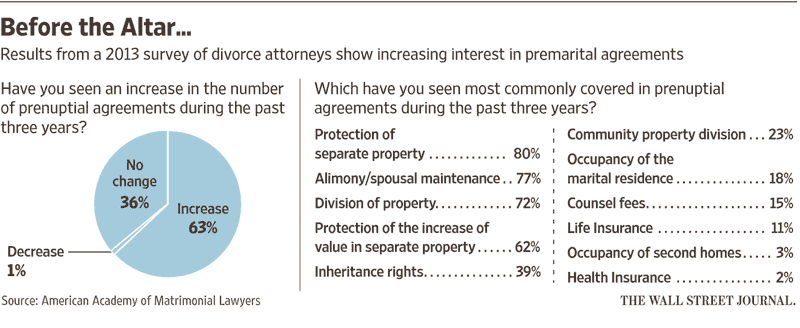Across the U.S. and in North Carolina, individuals are marrying at a later age. For those who have accumulated substantial wealth and financial interests before marriage, establishing how those assets would be divided should the marriage end is a responsible action to take. Likewise, couples entering a second marriage may wish to establish asset division upon the death of a spouse as it relates to children from a prior marriage.
These matters are addressed through premarital (also called prenuptial) agreements.
When a prospective wife or husband comes to Close Family Law for advice on a premarital agreement, our first step is to understand our his or her goals and determine if a prenup is needed. We make sure our client understands the potential outcomes should the marriage end – where a premarital agreement exists and where one does not.
Contents of A Prenuptial Agreement
It is important to note that a premarital agreement can address not only the outcome should the couple divorce, but also the intent of both parties should one spouse die during the marriage. These agreements can be structured to protect not only wealth or inheritance but to protect the rights and interests of both parties and to prevent a nasty court battle if the marriage comes to an end.
There is no such thing as a “standard” premarital agreement. Each one is based on a careful analysis of the particular goals of the client. Provisions covered in a premarital agreement may include:
- Protection of premarital property
- Elimination of spousal support
- Division of assets and debts upon divorce
- Occupancy of the marital residence upon separation
- Provisions for passing of property upon death
- Life insurance provisions

The lawyers at Close Smith Family Law have a great deal of experience in crafting solid agreements that give our client peace of mind as he or she enters marriage. We have also handled numerous cases in which our client has been asked to sign a premarital agreement presented by his or her fiancé. In such cases, we serve as a strong advocate to help the client retain, to the extent possible, his or her legal rights at the end of marriage.

